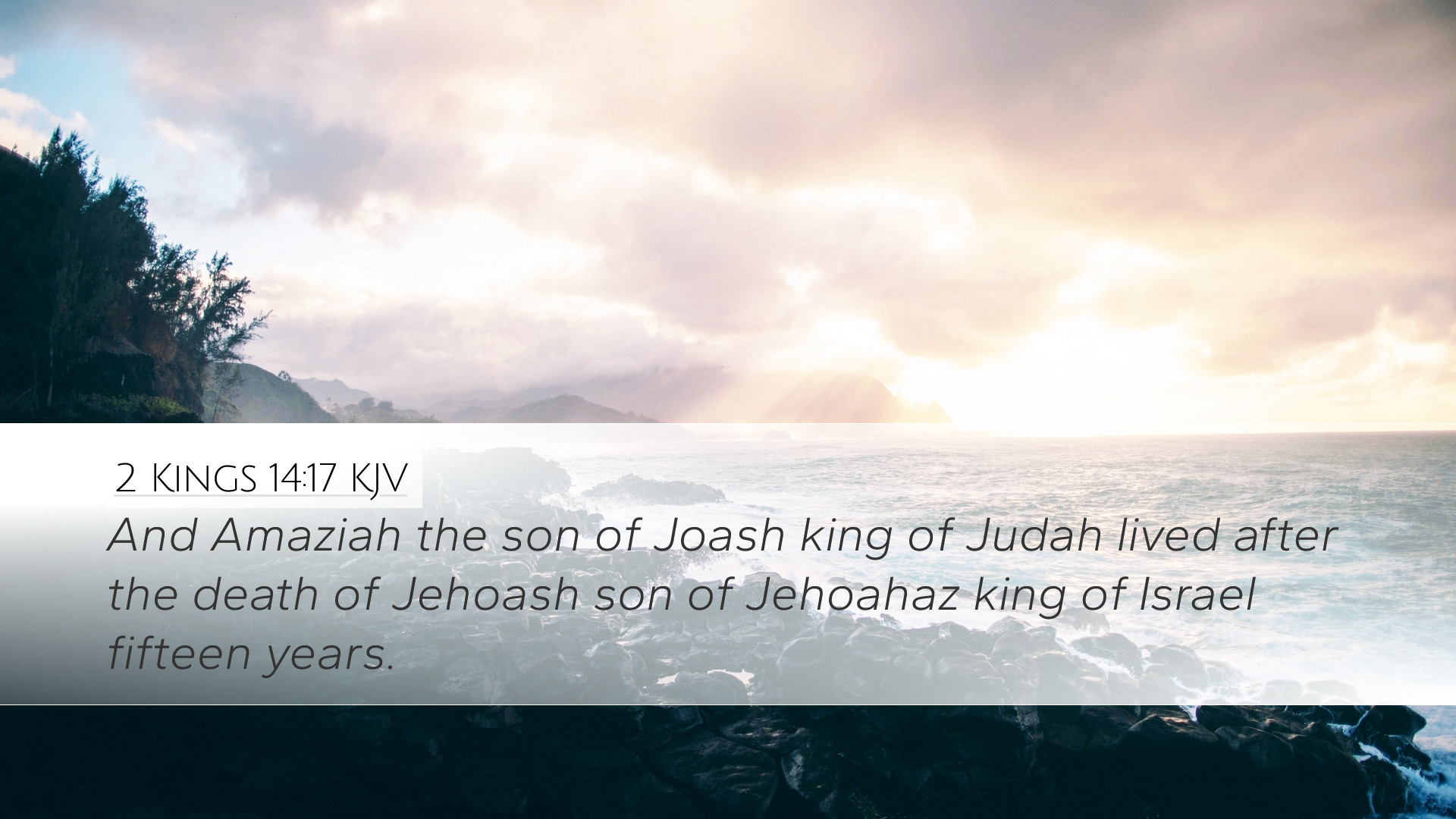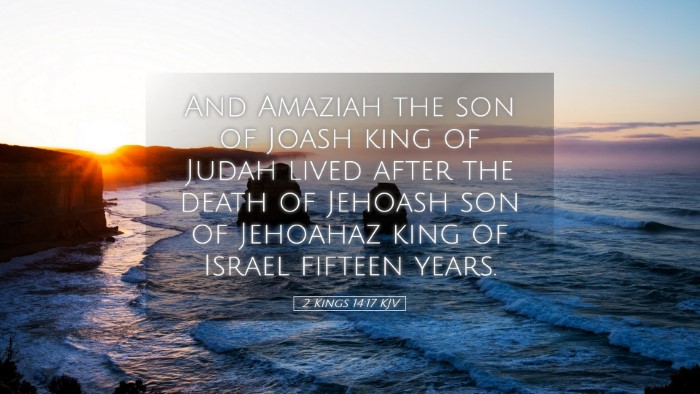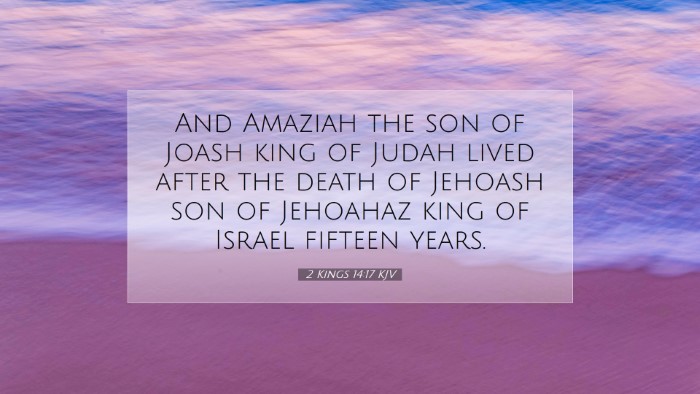Commentary on 2 Kings 14:17
Verse Context: 2 Kings 14:17 reads, "And Amaziah the son of Joash king of Judah lived after the death of Joash son of Jehoahaz king of Israel fifteen years." This verse serves as a pivotal reference point indicating the timeline of King Amaziah's reign in relation to other significant figures in the history of Israel and Judah.
Historical Background
Amaziah, son of Joash, ascended the throne of Judah following the assassination of his father. His reign is historically situated during a period of diplomatic and military tension between the kingdoms of Israel and Judah. This scripture highlights the overlapping reigns of key figures, which is crucial for understanding the dynamics within the two kingdoms. The mention of Joash, the king of Israel, who had an impact on both kingdoms, is noteworthy.
Theological Insights
This verse emphasizes God's providence in the royal line of Judah as well as the historical chronologies that define Israel's narrative. Matthew Henry remarks on the significance of royal succession in God's plan. He notes that God's sovereignty orchestrates events, including the rise and fall of kings, indicative of His omnipotence and providential governance over His people.
Covenant Heritage
Understanding Amaziah's Role: The genealogy of Amaziah can be seen as both a blessing and a burden. He inherits not only the throne but also the expectations of leading the people in accordance with the covenant made by God with David. Adam Clarke notes that Amaziah's reign, though somewhat turbulent, is a continuation of the Davidic line, reaffirming God’s promise to David regarding his descendants.
Cultural Reflections
Culturally, a king's reign was often measured by military success and stability. Amaziah's decisions during his reign—including the challenges faced from Israel—reflect the political maneuvering that characterized both kingdoms. Albert Barnes comments on how these events serve as both warnings and lessons in spiritual leadership, emphasizing the necessity of fidelity to God in governance.
Military Context
Amaziah is remembered for leading Judah against Edom, gaining a certain level of national pride and stability before facing the challenges posed by Israel later. The connection between military achievements and divine favor is significant in this context. The verse sets up the understanding that Amaziah, while currently in leadership, must navigate the ongoing hostilities and allegiances that define his reign.
Spiritual Lessons
The life of Amaziah serves as a poignant reminder of the necessity of aligning one's actions with God’s will. Despite his initial successes, Amaziah's later decisions led to his downfall, which is compounded by the context of this verse. As noted by Henry, the years after significant leaders often carry heavy implications for their successors. It is essential for leaders to recognize their responsibilities in their covenantal relationship with God.
Warnings from History
Amaziah's life trajectory cautions against the perils of pride and forgetfulness of God’s statutes. As Barnes points out, Amaziah began well, but his later actions often reflected a departure from righteousness. Upcoming verses narrate how this divergence leads to dire consequences, thus presenting a clear warning for future leaders and those in positions of influence.
Applications for Today
The significance of 2 Kings 14:17 transcends its historical context, providing enduring applications for contemporary readers. Leaders in various spheres, including the church, can draw lessons from Amaziah's royal history. The importance of seeking divine guidance, remaining humble, and staying true to one's covenant duties is paramount.
Leadership Reflections
- The Role of Legacy: Understanding the legacy we inherit and the responsibilities that come with it.
- Seeking Divine Guidance: A reminder for today's leaders to seek wisdom and counsel from God in their decision-making.
- The Consequences of Actions: Reflecting on how decisions can have lasting impacts not just for oneself but for an entire community.
In conclusion, 2 Kings 14:17 encapsulates a vital moment within the narrative of Judah's kingship, illustrating the complexities of leadership, the importance of a covenant relationship with God, and the need for vigilance in spiritual stewardship. Pastors, students, and scholars alike will find the layered meanings within this verse relevant and rich for both personal reflection and communal application.


